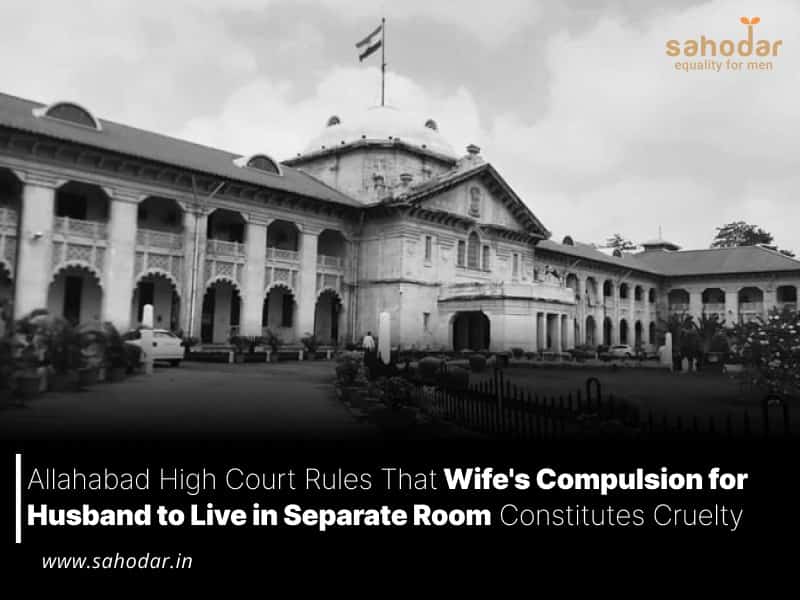The Allahabad High Court recently noted that when a wife refuses to live with her husband and compels him live in separate room, she denies him his conjugal rights, which amounts to cruelty.
The Division Bench of Justice Ranjan Roy and Justice Subhash Vidyarthi made this observation while granting a divorce to a man who claimed that his wife had compelled him to live in a separate room and threatened him with suicide and criminal charges if he entered her room.
The Court noted that the wife had clearly ended the marital relationship by insisting on living in separate rooms.
The Court also pointed out that it didn’t matter whether the wife was still living in the house or not since the husband had clearly stated that she wouldn’t let him enter her room.
“Cohabitation is an essential part of a matrimonial relationship and if the wife declines to cohabit with the husband by forcing him to live in a separate room, she deprives him of his conjugal rights, which will have an adverse impact on his mental and physical well being and which will amount to both physical and mental cruelty. The plaintiff’s allegation of being wrongfully deprived of his conjugal rights has not been controverted by the defendant-respondent and the same has been admitted by implication,” the Court observed.
The couple got married in 2016—it was the woman’s first marriage and the man’s second.
In 2018, the husband filed for divorce, saying that things were normal between them for only 4-5 months, after which his wife began harassing him.
The wife initially appeared in family court but later ignored the summons, so the case moved forward without her.
In January 2023, the family court ruled against the husband, stating that he hadn’t given enough details about his wife’s threats or shown that these incidents were ongoing.
The husband then sought relief from the High Court.
The Court observed that although the wife initially appeared in family court, she did not file any written response to contest the husband’s claims, effectively implying that she accepted his allegations.
“It was submitted in the written submissions filed on behalf of the plaintiff (husband) before the Family Court that the defendant (wife) has deserted the plaintiff since April, 2017 i.e., merely five months after the parties got married and she is not performing her matrimonial obligations since then. A period of five years had elapsed since the defendant stopped performing her matrimonial obligations towards the plaintiff and that she continuously behaved in a cruel manner,” the Court added.
The Bench also stated that the Family Court was wrong to dismiss the testimony of the man’s father.
The trial court had argued that the father would naturally support his son’s case because of their relationship. However, the High Court disagreed with this reasoning.
“In matrimonial disputes, the events in question take place between the parties within the four walls of their house, and the family members are the most natural witnesses of those events. The testimony of family members cannot be discarded on the assumption that they will only support the plaintiff’s case. The Family Court lost sight of the fact that the entire evidence of the plaintiff – appellant has remained unrebutted. The civil suits are required to be decided on the basis of preponderance of probabilities and the standard of proof beyond reasonable doubt, which is applicable in criminal cases, does not apply to civil suits,” it said.
The High Court also noted that the Family Court was wrongly influenced by the fact that the man had disputes with his first wife.
It pointed out that his previous marriage had ended in a mutual consent divorce, with no allegations made against him by his first wife.
“The Family Court was not justified in making assumptions against the plaintiff on the ground that his earlier marriage had failed,” the Court said.
Therefore, the Court concluded that there was enough evidence to establish grounds of cruelty and grant the divorce.
“Although the ground of the plaintiff’s desertion by the defendant is also established from the material available on record, since the Family Court did not frame any issue on this point, and the ground of cruelty alone is sufficient for allowing the appeal, there is no need go into this question in this appeal,” it added, while ruling in favour of the husband by dissolving the marriage.

